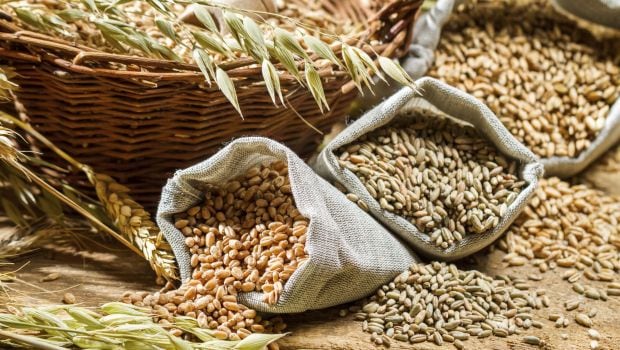In a bid to lose weight, we often indulge in various kinds of activities, including trying and testing various kinds of fad diets, hitting gym, practicing yoga or Pilates, et al. But in order to practice all of these activities, one has to be determined and follow a strong regimen religiously. We know that the process of losing weight is no fun for many of us. Although it's fun to drop a few inches from waist and fit into your old jeans, but does anyone enjoy giving up on their cravings or favourite food to reach to that level?
Health experts suggest some easy changes in our diet to lose weight and for healthy body. Consuming foods that are rich in fibre is one of them. If we focus on their advice, then we must include more fibre in our diet. In fact, there have been various studies that indicate that fibre keeps us full for a longer spell and helps manage our blood pressure, cholesterol and blood sugar.
(Also Read: 5 Fiber-Rich Foods You Should be Eating Everyday)
What Is Fibre?
Fibre is a complex carbohydrate, which we usually get from vegetables, fruits and whole grains. Foods that are rich in fibre are known to promote digestion by adding bulk to the stool. This helps in facilitating smooth bowel movement. Moreover, foods rich in fibre can induce a feeling of fullness, which keeps the untimely cravings or hunger pangs at bay. For the ones who have weight loss on their mind, they may consider adding fibre-rich foods to their diet. There are two types of fibre: soluble fibre and insoluble fibre. Both have their own health benefits and are known to promote our health in various ways.

Fibre takes time to digest, which makes you feel full for longer time.
What Is Soluble Fibre?
Soluble fibres are dietary fibres that easily dissolve in water. They are usually found in foods like grains, legumes, seeds, fruits and vegetables. As per FDA, when we consume such foods, the soluble fibre swells up with water in our stomach to form a thick gel-like substance, which slows down our digestion. Further, this gel is slowly metabolised by bacteria present in our large intestine; this process results in releasing a small amount of calories.
Foods High In Soluble Fibre:
- Grains: Barley, rice bran and oats.
- Seeds: Chia seeds, sunflower seeds and flaxseeds.
- Fruits: Guavas, apples, pears, apricots and figs
- Vegetables: Broccoli, cabbage, asparagus, turnip and sweet potatoes
(Also Read: 5 Protein And Fibre-Rich Dal Recipes You Can Try)

Soluble fibres are dietary fibres that easily dissolve in water.
What Is Insoluble Fibre?
As the name suggests, insoluble fibre does not dissolve in water, unlike soluble fibre. Insoluble fibres are the dietary fibre that do not pull in or swell up in water to form a gel-like substance. In fact, insoluble fibre passes right through our digestive system, adding bulk to our stool. Because of this feature, insoluble fibre may help prevent various stomach-related woes like constipation. You will find highest amount of insoluble fibre in whole grains, beans, nuts and some vegetables.
Foods High In Insoluble Fibre:
- Whole Grains: Whole wheat flour, popcorn, wheat cereals and wheat bran
- Beans and Legumes: Kidney beans, chickpeas, lima beans, and black-eye peas
- Vegetables: Cauliflower, potatoes, and green beans
(Also Read: 3 Ways Of Making Idlis Fibre-Rich)

Insoluble fibre passes right through our digestive system, adding bulk to our stool.
Bottom Line
The bottom line here is that dietary fibres are good for our health - both soluble and insoluble. There is no scientific proof or any fact that is backed by any medical study or research stating that one is better for you than the other. We need both kinds of fibre in our diets for healthy body, especially weight loss. In the end, what matters the most is that people (with no digestive problems) should load up on foods that are high in fibre. And the easiest way to make sure we getting enough of fibre - both soluble and insoluble - is by eating a wide variety of foods like vegetables, fruits, seeds, lentils, whole grains every day.
However, make sure you do not overload your diet with fibre. Practice moderation, as going over-the-board may increase the risk of having gas problems, bloating or stomach cramps. Make sure you consult your doctor before adding new food to your daily diet.
Disclaimer: This content including advice provides generic information only. It is in no way a substitute for qualified maedical opinion. Always consult a specialist or your own doctor for more information. NDTV does not claim responsibility for this information.









